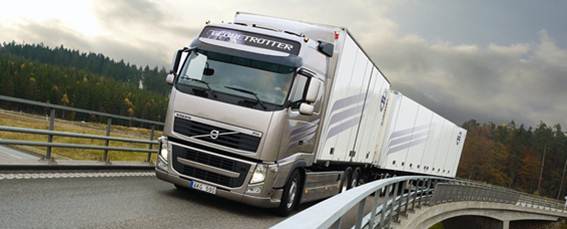Complete Vehicle Energy-saving (CONVENIENT)

Overview
COnVENient is an FP7 project funded by the European Commission. The project starts in November 2012 and is expected to finish in November 2015.
The CONVENIENT project targets a 30% reduction of fuel consumption in vehicles for long-distance freight transport by developing an innovative heavy-truck prototype featuring a suite of innovative energy-saving technologies and solutions. From the customer viewpoint, fuel efficiency is top priority because of its significant impact in terms of cost. Responding to this challenge, the objective of CONVENIENT is to achieve complete vehicle energy management by proposing highly innovative solutions for improved efficiency and enhanced integration of components (currently designed independently) which will be developed, integrated and evaluated directly on validator vehicles, including:
- Innovative energy efficient systems, e.g., hybrid transmission, electrified auxiliaries, dual level cooling, parking HVAC,
- Energy harvesting devices, such as photovoltaic solar roof for truck and semitrailer,
- Advanced active and passive aerodynamics devices for the truck and for the semitrailer,
- A Holistic Energy Management system at vehicle level,
- A Predictive Driver Support to maximize the energy saving benefits,
- A novel Hybrid Kinetic Energy Recovery System for the semitrailer.
The most relevant and novel aspect of CONVENIENT is represented by the holistic approach to on-board energy management, considering the tractor, semi-trailer, driver and the mission as a whole.
The CONVENIENT Consortium, which comprises three major EU truck manufacturers, ten Tier 1/2 suppliers, and a network of nine research centers and Universities, representing European excellence in the field of long distance transport R&D, is uniquely well-qualified with respect to the project scope and the highly ambitious target of achieving 30% gains in vehicle efficiency.
KTH’s Role in the Project
KTH contributions are dedicated to two research tasks.
- Predictive Integrated Thermal System Management.
- Predictive Energy Management Strategies
In the tasks, we study a conventional Volvo long-haul truck with diesel engine. To meet the EU6 standard, the cooling system will be electrified. The mechanical water pump and mechanical fans will be changed to electric water pump and fans with variable speed. The electric cooling system will be controlled by advanced control strategies exploiting prediction on future drive speed and torque.
In the second task, we consider not only the thermal system, but also all relevant energy buffers and consumers, such as air conditioning, battery management unit, vehicle motion and toque control. A hierarchical control architecture that solves an optimization problem at the high level and regulates the individual actuators at the low level will be utilized.
In summary, KTH contributes to speed and load prediction, optimal control, model-predictive control, and feedback control of various actuators.
Prototype Truck

The most exciting part of the project is the opportunity to implement our controllers on a real truck in real traffic! The numbers of actual fuel saving will be measured on the testing truck.
Project Homepage
The project homepage is at: www.convenient-project.eu/
